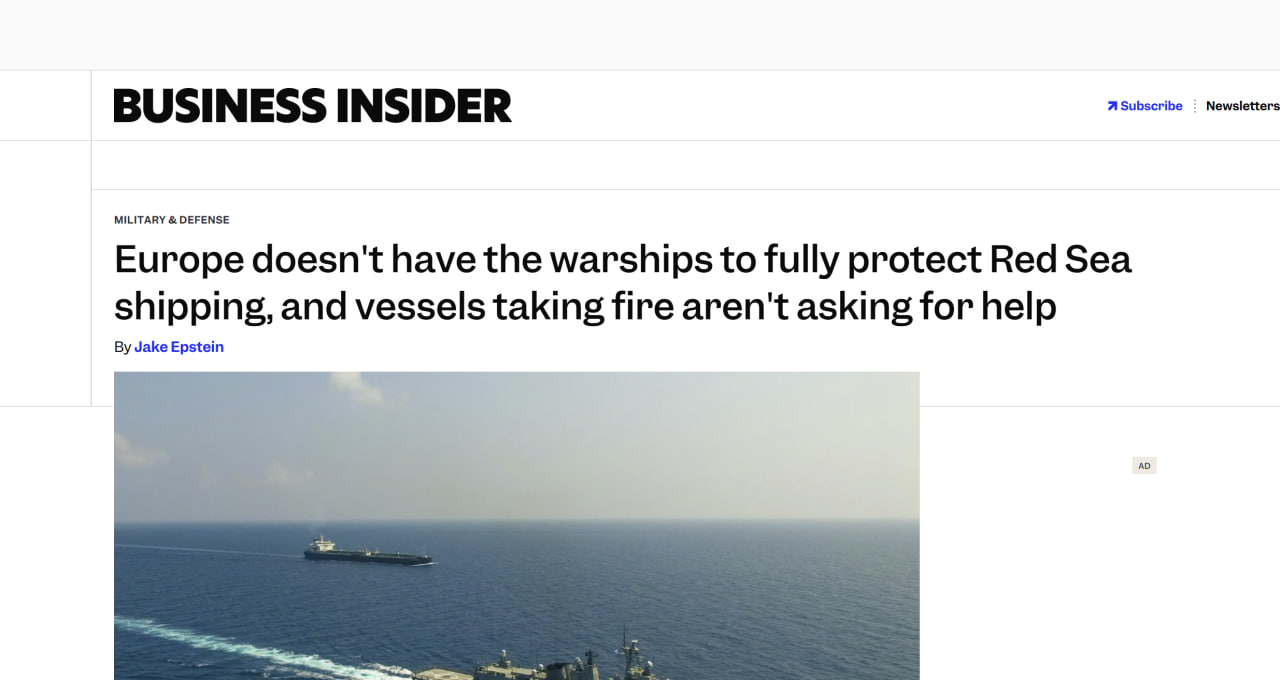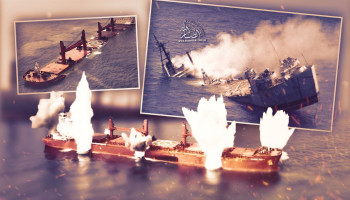Thursday, July 17, 2025
Business Insider reported that Europe is effectively powerless to protect shipping lanes in the Red Sea, acknowledging the failure of the EU-led Aspides mission to counter attacks by Yemeni naval forces.
According to statements by Rear Admiral Vasileios Griparis, commander of the European mission, the average number of warships operating within the Red Sea operation does not exceed one per day, which he considered "insufficient to secure a vast operational area stretching from the Red Sea to the Gulf."
According to the newspaper, the two ships recently targeted by the Yemeni Navy, the Magic Seas and the Eternity Sea, did not request protection from the Europeans, revealing Aspides' inability to even enforce rules of engagement or control the movement of vessels.
The European commander acknowledged that the mission relies on voluntary contributions from member states and does not have the authority to mandate the dispatch of ships or reinforce naval deployments.
He noted that ships that are attacked and do not request protection are heading their own way, preferring to take risks rather than wait for "the next available protection opportunity." While Europe is promoting the Aspides mission as a defensive shield to protect commercial shipping, the reality—as reported by the newspaper—shows that it is merely a symbolic presence in the face of the escalating operations of the Yemeni army, which continues its qualitative attacks in the Red Sea and recently sank two ships within a week. Business Insider confirms that the attacks represented a "worrying development," according to Griparis, but they did not surprise observers, especially after the United States withdrew from offensive operations last May under a ceasefire with Sana'a.
The newspaper adds that "the US-Yemeni ceasefire did not prevent Yemeni forces from continuing their operations against ships bound for or supporting Israel, embarrassing both Europe and the United States and revealing that so-called "freedom of navigation" is no longer guaranteed in the Red Sea region."







